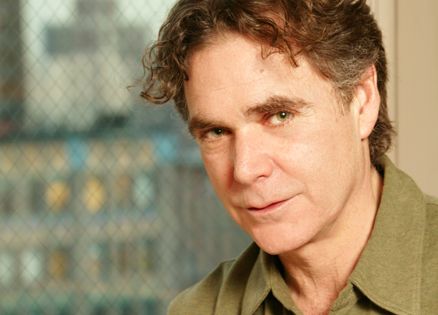Biologically, we never stop changing. The molecules we wake up with are different than the molecules we went to sleep with. Hair grows and falls out, blood-sugar levels fluctuate. My fingernails lengthened slightly as I typed this. One of the first scientific factoids I remember hearing was that our bodies undergo a complete cellular makeover every seven years, roughly the time it takes for the billions and billions of cells that constitute our corporeal being to turn over. So how come, my innocent middle-school mind wondered at the time, we aren’t completely different people at each septennial juncture?
Ah! said my science teacher, that’s because our DNA stabilizes this process. Biological change is “process change”— change we have little or no control over. Nature just takes care of it, as it does the turning of the seasons and the rotation of the earth on its polar axis. The kind of change I’m talking about, the kind that begins with honesty, is the kind we take care of (or not), the kind in which we are the change agent. Real, personal transformational change.
Most of us tend to view our personal changes a little like nature’s changes—as something that happens in our external world: we get a big promotion; we gain thirty pounds in the years after our kids are born; a loved one dies, and so on. But change at its most basic level is how we react to what happens to us in life, not the event itself. The big promotion at work or gaining thirty pounds or losing a loved one are what happens, but they’re not change—not really. Positive change occurs when you decide to do something about your exciting new responsibilities and power at work or those unhealthy pounds or your paralyzing grief.
Which brings me back to the matter of honesty, and why it’s the first indispensable prerequisite in transformational personal change. Unless we are willing to honestly recognize and admit a problem—unless we address our attitude before anything else—we have virtually no hope of changing beyond some highly statistically unlikely event, such as being struck by lightning on the road to Damascus, and few of us will ever hit that particular spiritual jackpot.
Most of us are honest people. But being unflinchingly honest with ourselves is truly hard. I work at it every day. It is not a perfect process. In fact, self-honesty can be a very messy business. There is no one easier to lie to than yourself. People who would never lie to their children or their friends have no compunction about deceiving themselves. We justify our faults and disappointments by blaming others or circumstances we believe we can’t control. We think it is a shortcoming to admit unhappiness. We say we’re not angry and resentful when we know we are, for fear that we’ll be thought of negatively or even denied love. We say that we have strong faith, yet we mistrust the future. And maybe it’s the bathroom scale that’s five pounds over, not me.
We don’t just hide from tough truths. We also hide from our true desires and dreams, afraid to admit what we yearn for from life, as if doing so were vain, selfish or unwisely tempting fate. There’s nothing wrong with wanting a better life and greater happiness; the journey of personal change is a journey toward joy. Yet unless we honestly believe that we deserve it, and then work to achieve it, happiness will always be beyond our grasp. It’s not enough to simply believe in the dream; you have to believe you deserve it.







